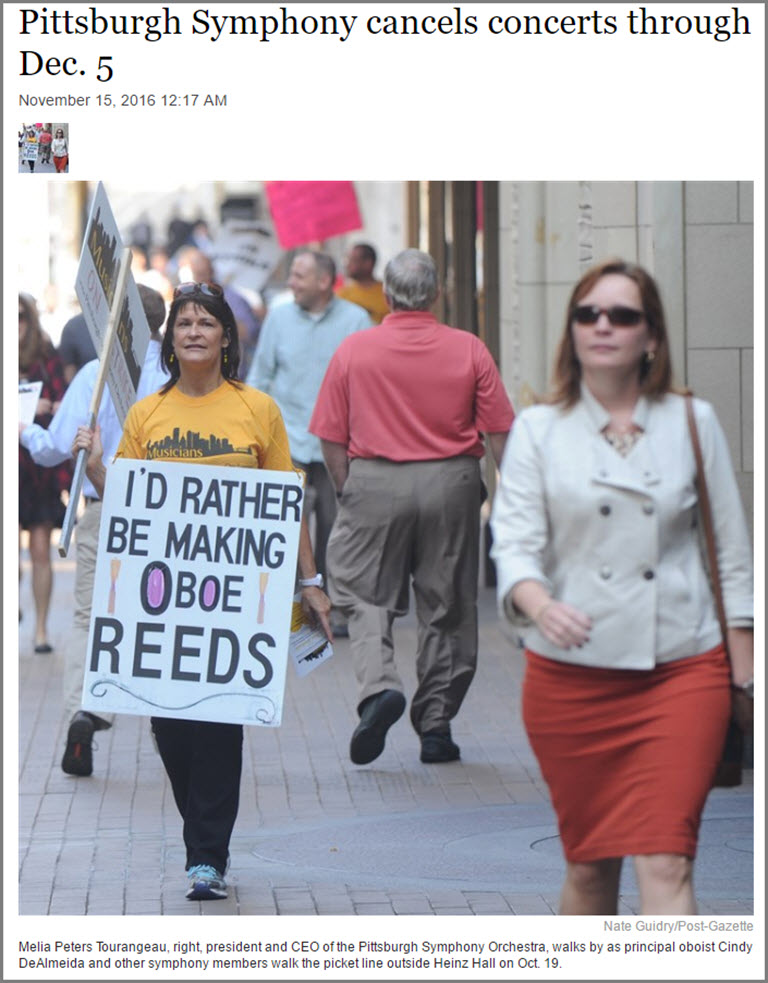Today’s music headlines here at Arts Journal feature two articles about the Mountain Laurel Center for the Performing Arts canceling their summer contract with the Pittsburgh Symphony. This obviously comes as bad ness for an orchestra that is already battling skyrocketing deficits and month to month cash flow problems.
I contacted Jody Doherty at the PSO to find out what the orchestra plans to do. Unfortunately, the orchestra isn’t releasing any information about how much money they are loosing by not performing their eight concerts over a period of two weeks. To add insult to injury over this problem, the orchestra isn’t even able to perform in Heinz hall due to the production of Mama Mia during that time period where the orchestra was scheduled to be away.
Although I’m not pleased that Pittsburgh is unwilling to release any information about how much money they’ll loose from the cancelled Mountain Laurel Center performances (they aren’t doing themselves a favor by hiding their losses), I do have some free advice:
Use this opportunity to tell the community how much you’re loosing so you can find a donor willing to replace those funds by creating a series of free concerts in the surrounding Pittsburgh communities.
Outgoing Pittsburgh Symphony Music Director, Mariss Jansons was quoted in an article in the Pittsburgh Post-Gazette by Andrew Druckenbrod as saying:
“To be honest, when I came until now I have the same questions,” Jansons said. “Nobody can answer what’s the capacity of the music life of this city. Are there enough people here; more that would come; or is this our limit? The people who like the Pittsburgh Symphony and support it are good, but I am speaking generally of the full city. I am not sure people recognize the value of this orchestra, including the leaders.”
What better way to begin to answer Maestro Jansons’ questions than by using these two weeks to start building a new audience. The PSO simply needs to go where they haven’t been before and reach out to middle class communities.
- Let the players decide what to perform and even let them decide if they want to break into smaller ensembles. You don’t need conductors, just let the players do what they already know how to do and what they do best: create live performance art.
- Use existing community contacts and develop new contacts to find venues that will allow you to perform for little to no rental fees.
- Let the artistic managers facilitate the musician’s ideas instead of having them come up with every answer on their own. Get rid of the phrase “we can’t do that” when musicians come to you with their ideas.
The orchestra needs to put every available asset into motion at these free concerts by exposing as much of the orchestra to the public as possible. Abandon the old, static “they sit and listen; we sit and play” mentality. Managers and staffers need to help make these new patrons feel welcome and invited. And most importantly, there needs to be interaction between players and the public so that they can get to know who these musicians are and what makes them a special part of their community.


